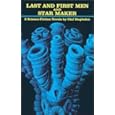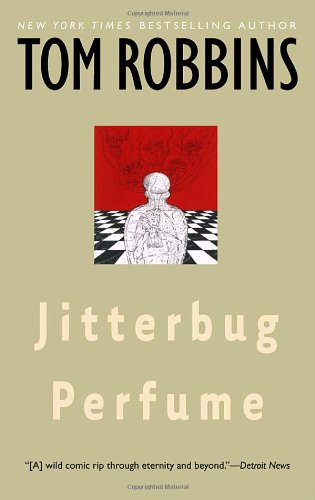
Review by Nathaniel Kidd
CS Lewis's clear and soft-spoken presentation of the core doctrines of the historic Christian faith for a 20th C audience has rightly gained a reputation as a modern classic within Christian literature. Unfortunately for readers in our circle, Lewis's doctrine and memory has been appropriated primarily by the rather tasteless form of the Christian faith that easily and uncritically accommodates the Powers and Principalities of postwar capitalism, and that may taint the force and appeal of his argument.
A partial remedy, perhaps, may lie in appreciating Lewis within his historical context. We should remember, after all, that Mere Christianity began as a series of radio broadcasts on the BBC during WWII, endorsed by the British government as a way of consolidating national morale in an especially dark and difficult time. In this view, I like to think of Lewis as resourcing a theology of resistance: hiding out in underground bunkers during Nazi air-raids to proclaim that there is a ground for hope, and that the resistance is not in vain. You won't get that from a superficial reading of MC, but it's there, just beneath the surface.
That said, I think that our readers might better appreciate some of Lewis's other works: his fiction, in particular -- his Space Trilogy, for instance, and his famous, young reader oriented fantasy, the Narnia series. His retelling of an ancient myth in "Till We have Faces" is also extraordinary, although somewhat subtle. It is in these contexts where the scope and power of his imagination are more readily at play, although the theological engine articulated in MC and some of his other prose works is always present.
It has become extremely unpopular in modernity and postmodernity to root one's social and artistic imagination in the historic, canonical orthodoxy of Judeo-Islamo-Christianity. In most circles, being a heretic is almost a prerequisite for being taken seriously -- it is, in effect, the new orthodoxy. But the ongoing interest in Lewis and his works stands as an icon of the enduring power and appeal of theology in its classical form -- as well as its continuing fecundity in underwriting imaginative alternatives to the oppressive and horrific systems of modernity. We are empirically justified in expecting, after all, that a story that proved capable of sustaining the human soul through the convulsive terrors of the first half of the 20th C, will likewise prove to be of value anticipating the apocalyptic terrors that await us in the first half of the 21st.

Review by Meg Duke
To say it's grand in scope is an understatement. A book some believe to be "channeled," it follows the perspective of a soul from earth swept away to scour the universe in all its various forms on a myriad of alien planets for the greater meaning of life -- for the Star Maker...

Review by Kyle Venooker
Temperance is a strange, winsome, complex tale that interweaves a handful of stories -- that of Pa, of Peggy, of Minerva, of Lester, and of Temperance -- into a narrative that explores themes of legacy, of truth, of control and dominance, and, unexpectedly, of hope.

Review by Bill Svoboda
Highly readable. A perfect companion to "Testosterone Files" would be "Men Are From Mars, Women Are From Venus". Kudos to Max Wolf Valerio for writing this- and Seal Press for publishing it. A book worthy of re-reads, discussions and arguments-this is a 5 star if you remember to take all that testosterone with a grain of salt.

Review by Bill Svoboda
This well made hardback (about an often sad and/or horrific subject), paradoxically represents small press excellence. This was my introduction to the Hayward Gallery Press, the Hayward Museum, and artist Ann-Sofi Sidon- lots of cool,wonderful & amazing work by all of them! Concerning a different type of work -sex for money, it is more "business as usual" than ever in the Czech Republic, while human trafficing has spread throughout the world (Orlando Florida!) This book prompted a great deal of online research on my part-as a result of which I'm confident in disagreeing with the socio-politico-economic narrative Ann-Sofi Sidon seems to believe-namely, that as a result of the collapse of a "Socialist" country (and the subsequent slashing of the social safety net), many women are forced into prostitution. Actually, in the Czech Republic both education and medical care are essentially free- and the quality of both healthcare and education have improved since the days of the Soviet backed regime. The extreme repressiveness of the state (in the name of "Socialism") was one of the main reasons prostitution was far less common under State Socialism than it is today- I could go on and on- but Sidon's political beliefs are in the background, and don't detract from most of Warte Mal! -which, again is quite well done-(Studs Terkel would have been impressed by her interviewing prowess!) This is yet another book filled with complexities which I would love to discuss in greater detail-meanwhile "Warte Mal" has gotten scrambled to "Wal Mart" in my head.

Review by Bill Svoboda
I found the woo to be immeasurable, although I did see some nuggets of genuine science. Pile it Higher and Deeper!

Review by Meg Duke
Flew through the first five but slowed slightly with six... Ananda's story is wild..!

Review by Meg Duke
awe·some (adj)
1: inspiring awe
--an awesome task/responsibility
--a place of awesome beauty
via Merriam-Webster

Review by Roar RAWWRRR
Surreal and original! this novel is not shy to expose the naked elements of the human soul warts and all, as well as naked form the human body. In an odd way i feel the best effect this book had on me was an exploration of the flaws involved with hedonism centered around an individuals purchasing power. I love the aesthetic role of the islands various marvels. The protagonist is a scummy terrible person which i find makes it all together fascinating, providing a glimpse into the psychology of someone who i entirely do not relate to is an exercise for my brain. Overall i found this book to be a treasure of literature and a novelty of writing and illustration.

Review by Kryssanne Adams
Murakami's protagonist, Mr. Wind-up Bird, spends a lot of time at the bottom of a well as he mourns for the inexplicable disappearance of his wife. This book kept me great company when I felt like I needed to spend some time at the bottom of a well just to think.

Review by Kryssanne Adams
I'm retraining myself to enjoy reading again after severely impairing my attention span; at this time in my life, it's difficult to finish reading anything cover to cover. However, I had no issue with Jitterbug Perfume. What a joy to get lost in! This book has everything I want to zone out with: intricate descriptions of beets, the history of perfume, an invisible Pagan identifiable only by his wretched stench, and multiple stories woven together across multiple timelines. It all just works somehow.

Review by Kyle Beckhorn
Freaky book.
Follow the perspective of "OPERATIVE ME", a terrorist from some new totalitarian state that idolises basically all leaders that have shown hostile force against The United States...
"Operative me" is a foreign exchange student, with the mission of executing "OPERATION HAVOC". He is nicknamed Pygmy, because his American host family and peers view him as a small, dumb, poor little creature that just needs a little American culture and Christian faith.
Those are the ingredients to prosperity and happiness, right?
The host family is wonderfully dysfunctional, with a father who does top-secret government work, a mother who is always stealing batteries from her kids to power up and test drive the newest vibrators on the market. Then their 2 children, who routinely "Roofy" their parents in order to steal the family car, stay out late, or otherwise break the house rules.
There was a violent scene early on in the book that almost made me return it, but if you can get past that, its pretty good. Written in a disjointed style, like nothing I've ever read before.

Review by Irene Vallone
Subverted my expectations in a way that I'm still considering, almost a week later, whether or not I appreciated. I was expecting a more explicit account of the poet's relationship to gender; what I read was somehow even more personal, and left a real emotional impression on me in a way that a lot of similar poetry has failed to do.

Review by Cody Harder
Filth porn barf bling, laced with hallucinogens. GROSS!! . . . I like it.

Review by Cody Harder
I have read "Arsene" three times over the course of several years, and it's just as enjoyable each time. In it, the author, Olivier Schrauwen, relates to us a (very) colorful tale of how his grandfather, Arsene, came from Belgium to "the colony," and his venturous time there. A delightfully heady blend of absurdism, abstract art, and surreal story-telling almost reminiscent of Don Quixote, "Arsene" is full of dry wit, thoughtful prose, and downright outrageous instances of bullshit artistry. I laugh like a lunatic whenever I read it! Beware . . . the lEoPaRd MeN . . . :0

Review by Cody Harder
Pretty decent filth. It kind of reads like watching 15-20min Ren and Stimpy cartoon set in Ner Arlnz; that said, you may find this funnier if you have experienced the crusty side of New Orleans (??) yourself. As the author suggests in the "foreword" (?), expect to get mo stupider after reading this. Hey, feels good man...

Review by Bill Svoboda
What a wonderful and healing book. Enjoy.

Review by Bill Svoboda

Review by Bill Svoboda
An especially good title! . Some minor quibbles about what WASN'T included-but this is still a great book. Four and a half stars.

Review by Nathaniel Kidd
Wegner's learned study of utopic geography and attempt at mapping modernity through spatial history falls squarely within the "outside of the box" box of contemporary critical theory, charting a trajectory through a canon of utopian literature that helps us to name the historical and philosophical freight of these fantasies. Wegner might be better read in dialogue with Radical Orthodoxy, and the recent insights developed by Milbank and Taylor, viz., that the "secular" in its medieval and classical conceptualization is not so much a space as a time, such that the the attempt to spatialize imaginary communities actually involves a violent expulsion of any notion of sacral space in the service of a progressive vision. The absence of engagement with this insight, in my view, makes Wegner's work insufficiently critical as a critical perspective. Nevertheless, it is a valuable member of the library collection in speaking to the structure of a variety of imagined alternatives to existing sociocultural spaces and structures.